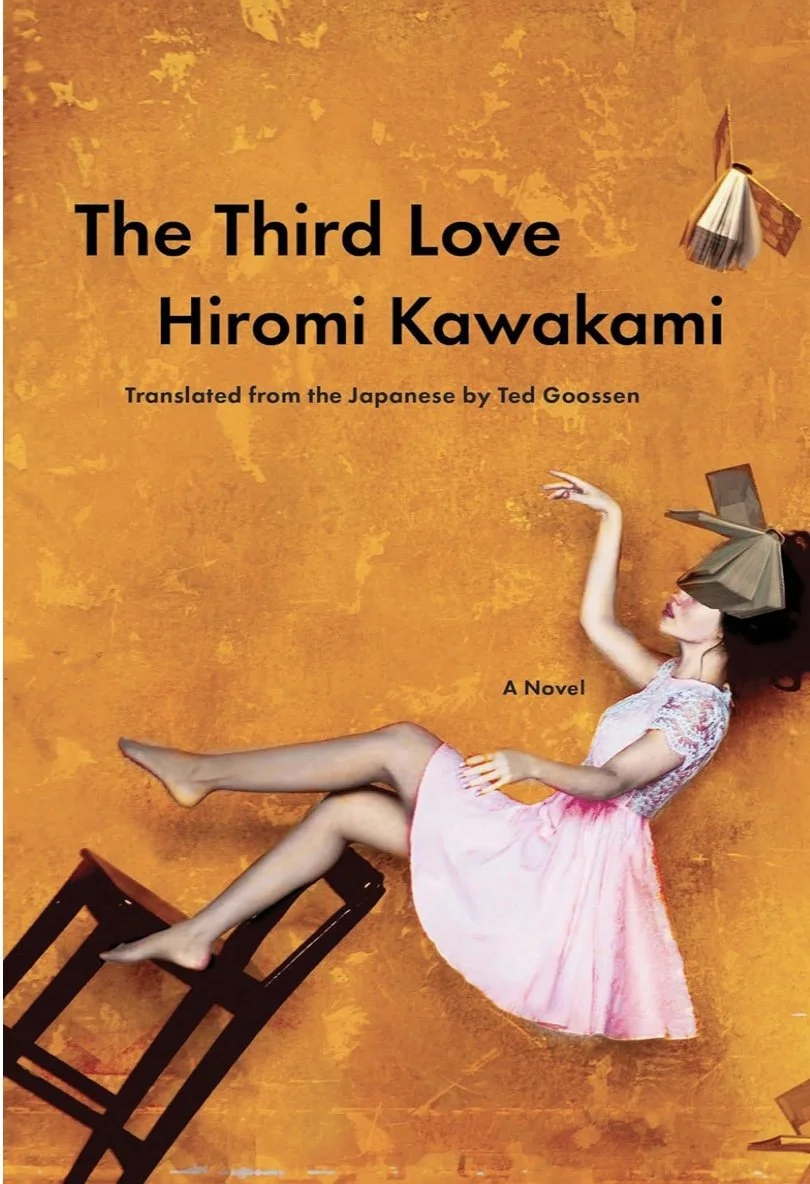The Third Love
by Hiromi Kawakami
Translated by Ted Goossen
A contemplative novel about love, self-worth,
and the lessons we learn in our dreams.
What It’s About
Riko grows up alongside Naruya Harada, or Naa-chan, the boy next door who becomes her first love. As children, they chase beetles and daydream together. As adults, they marry. On the surface, it’s the perfect story, familiar, affectionate, and steady.
But marriage does not unfold the way she imagined. Naa-chan seeks attention elsewhere, leaving Riko to carry the invisible labor of home and family. Her love for him remains, but so do her doubts, exhaustion, and questions about what she deserves.
Alongside this everyday life, Riko begins to dream. These dreams take her into other times and other lives, from the pleasure houses of an older Japan to the inner workings of a royal court. In each dream, she encounters different versions of love, desire, power, and duty. And with each one, she is forced to reconsider what she expects from others and what she owes herself.
The dreams are not escapes. They are mirrors. They show her the patterns she cannot see when she is awake. As she moves between these dream worlds and her real one, Riko slowly comes to understand her own worth and what it truly means to love.
My Take
This was the perfect book to read while wandering through Tokyo. I spent my days walking through shrines and eating ramen, and my nights reading Riko’s story. Kawakami’s writing has that same slow rhythm I look for when I travel, the one that lives beneath the surface.
What struck me most was how Riko’s dreams give her space to step back and see her life differently. They aren’t fantastical adventures; they’re more like a form of reckoning. Through them, she experiments with different ways of being a woman: someone who lives by her own terms, someone bound by duty, someone negotiating compromise. Each path teaches her something about herself.
The book also made me think deeply about how women’s roles have shifted. Riko’s daily reality is shaped by invisible labor and uneven expectations, yet the dream worlds reveal that even where women are freer, they still navigate power, jealousy, and societal pressures. Life is often a negotiation between cultural scripts and personal needs.
Kawakami’s prose is simple but layered. Time inside Riko’s dreams bends and stretches. A single night might hold a year, and a year might pass in a single breath. Riko sometimes speaks directly to the reader, as though confiding over a cup of tea. Even in moments of frustration or heartbreak, the tone stays gentle and honest. The story moves fluidly between waking and dreaming, always focused on Riko’s growing self-awareness.
Ted Goossen’s translation captures the quiet, layered quality of Kawakami’s writing so well that I often forgot I was reading in translation. The tone feels natural and true to Riko’s voice.
Would I Recommend It?
Yes, absolutely. It’s the kind of book that rewards patience, unfolding in layers rather than leaps. The Third Love doesn’t rely on grand gestures or dramatic twists, but on the steady weight of insight and self-discovery.
Thank you to NetGalley and Catapult, Counterpoint Press, and Soft Skull Press for giving me an early read of this novel.
Where to Find It
Buy on Amazon
Buy on Bookshop.org – First time on Bookshop.org? Click for discount code
Also available via WorldCat if you want to check your local library.
Join the conversation in the My Asian Era book club on Fable
Not on Fable yet? Download the app here.
Related Reads
If this resonated with you, you might also enjoy:
Breasts and Eggs by Mieko Kawakami – A deeper look at womanhood, choice, and self-definition.
Colorless Tsukuru Tazaki and His Years of Pilgrimage by Haruki Murakami – A story about time, longing, and the spaces between people.
This post contains affiliate links. If you purchase through these links, I may earn a commission at no additional cost to you.

